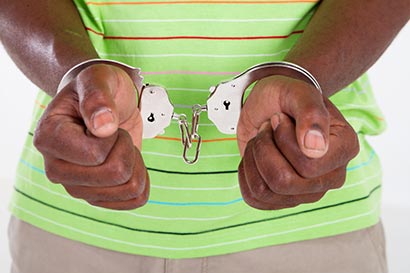Nigerian activists slam NYT article on US gay rights support
 Nigerian activists have spoken out against a recent article published by the New York Times claiming that America’s support for LGBT rights in Nigeria has done more harm than good.
Nigerian activists have spoken out against a recent article published by the New York Times claiming that America’s support for LGBT rights in Nigeria has done more harm than good.
Since coming to power, President Obama and his administration have been vocal in condemning anti-LGBT laws and persecution in Africa, and have ramped up support for human rights groups on the continent.
This US backing has been used by homophobic African leaders to argue that homosexuality is being “promoted” and “imposed” on Africa by the West. They have also emotively claimed that this “interference” in local culture and traditions is a continued form of colonial imperialism.
According to a Nigerian student quoted by the newspaper, “The US support is making matters worse.”
He said that Western pressure on Nigeria to stop prosecuting LGBT people has “triggered people’s defence mechanism.”
The article stated that the passage of Nigeria’s notorious 2014 anti-gay law “is widely regarded by both supporters and opponents of gay rights as a reaction to American pressure on Nigeria and other African nations to embrace gay rights.”
The article’s author, Norimitsu Onishi, wrote: “America’s money and public diplomacy have opened conversations and opportunities in societies where the subject was taboo just a few years ago. But they have also made gay men and lesbians more visible — and more vulnerable to harassment and violence, people on both sides of the gay rights issue contend.
“The American campaign has stirred misgivings among many African activists, who say they must rely on the West’s support despite often disagreeing with its strategies.”
In a statement, the Coalition for the Defence of Sexual Rights (CDSR), an umbrella body of organisations working to secure the human rights of all Nigerians, said that it was “alarmed” by the article.
The coalition stated that it “dissociates itself” from the article, which it said lacked “journalistic rigour,” and that it is “taken aback that some people say the support they receive from the US or the West has backfired on advocacy.”
The CDSR went on to say: “We categorically state that US and other western nations support for LGBT rights in Nigeria has actually brought our issues to the front burner of politics and policy making.
“In fact to a large extent, it has contributed to the visibility that we enjoy as a community and using that visibility to strengthen our advocacy.”
The activists agreed that they have had concerns about tactics employed in the past by the West in speaking first without local consultations.
However, “the policy has since changed, in that local activists are consulted first before any decision is adopted by the West, especially the US,” they said.
The CDSR was further alarmed that while the article singled out financial support for LGBT rights by the US government, it failed to mention support coming from anti-gay Western groups for homophobic legislation and policies in Africa, such as that from the World Congress of Families.
“In correction of the misleading information as contained in the article, CDSR urges the New York Times to reproduce a more balance and unbiased article, and when seeking information on LGBT rights advocacy to speak with known frontline activists,” said CDSR.
“CDSR continues to count on the support its receives from the west and other donor agencies in ensuring that human rights for all Nigerian citizens becomes a reality without exclusion of any group,” the activists concluded.
Nigeria has some of the most repressive anti-LGBT laws in the world. Under colonial-era legislation still on the statute books, those found guilty of engaging in homosexual acts face up to 14 years in jail.
In January 2014, the draconian Same Sex Marriage (Prohibition) Bill was signed into law. It prohibits same-sex marriage with a penalty of up to 14 years in prison and stipulates 10 years jail for public displays of same-sex affection and 10 years for membership or support of LGBTI equality and advocacy groups.
Muslims in twelve northern states in Nigeria also live under Islamic Sharia law, which allows homosexuality to be punished with death by stoning. Although this sentence is rarely carried out, those found guilty have recently most commonly been sentenced to public floggings.
Leave a Reply